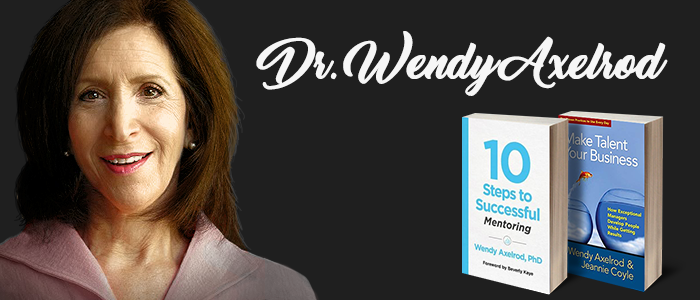I often hear from people who want to deepen their mentoring skills, and are surprised when I suggest that cultivating the best possible relationship is a skill in itself. Masterful mentors know how to foster qualities that are most central for a career-expanding mentoring relationship. Acceptance, mutual respect, conversational safety, and transparency are all part of it. As the mentor, you have the lead in observing how the relationship is going and taking steps to ensure its vitality.
Here are three actions to consider
OBSERVE WHAT IS HAPPENING IN THE DYNAMICS OF YOUR RELATIONSHIP
Each of your meetings has the potential to be a gem of a conversation, taking the mentee to new places and new insights.
- Assess the flow of your conversations and how it contributes to the forward progress of your mentee’s goals. Time spent together should be purposeful, yet flexible enough to include ad hoc discussions. Allow yourselves to delve into some areas more deeply, especially when those discussions have discovery potential.
- Take note of whether there is enough trust for them to share what concerns (or even embarrasses) them most, whether a lack of confidence or competence, or a troubling interaction. If they are holding back, think through how you can make the conversational environment safer for them.
- Consider a wonderful barometer of the atmosphere between you as to whether you are each eager for your next meeting. If so, identify the positive underpinnings of the relationship and discuss those. If not, jointly envision what needs to be addressed, which might include: expectations not being met, lack of accountability to the process, or maybe spending too much time on topics that are not goal-oriented.
ESTABLISH REGULAR CHECK-INS TO DISCUSS THE PROCESS
As part of setting expectations for your work together, advocate regular check-ins to ensure the health of the process. This opens the door for the mentee to speak up to someone with much greater experience. And, it avoids suddenly bringing up negative news when your process is not going well. Select from a variety of ways to tuck this into the mentoring conversation:
- Ask questions that are specific and require a thoughtful response on their part, e.g., “In what ways is our process supporting your mentoring goals?” “What two things would take this mentoring process to the next level?” If they are cautious about responding, remind them that this is good practice for questions they get at work about improving their functions.
- Reserve five minutes at the end of the meeting for each to describe your favorite part of the meeting, and what you believe was accomplished. Then identify what you want to be included in your next meeting.
- Suggest that each of you take accountability, in advance of the next meeting, to propose useful questions to help address a knotty part of your process (e.g., the mentee feels too directed by the mentor, or the mentor is not seeing anticipated follow-through)
WELCOME FEEDBACK FROM YOUR MENTEE
Many people believe the normal flow of feedback in mentoring is what the mentor offers the mentee. Inviting feedback from your mentee is an act of trust and respect. Though they may not provide much substance the first time you ask, they will appreciate your openness and be more likely to speak up when it really counts. Consider these three actions:
- Prime this conversation by giving a lead-in, stating the purpose of this discussion. Invite the feedback with a non-threatening question that allows them to suggest future behaviors rather than evaluate your performance. e.g., “What could I do in our conversation next time, that would make us even more productive?”
- Be mindful that the way you receive the feedback is modeling how they could take in feedback from others. Plus, importantly, it sets the tone for true give-and-take in your ongoing relationship.
- Take an inquiring stance, using an open, curious tone of voice. Ask for details. I once had a mentee whose feedback to me was, “Wendy, when I come to you with a problem, you ask too many questions. I wish you’d just give me straight-forward answers.” I asked her for examples and that helped me understand her frustration with my approach. Just as important, the open tone of the conversation led to a discussion about how well-formulated questions can spur deeper and actionable learning.
Ready to take your mentoring even further? Become a master at cultivating a deeper relationship; one that is open to questions, feedback and purposeful modifications in how you work together. This is bound to both increase your capacity as a mentor, and achieve more impactful and lasting results.
ABOUT DR. WENDY AXELROD
Wendy Axelrod is an Executive Coach, former HR executive, mentor, author, and speaker. For three decades, Wendy has helped organizations to achieve extraordinary results with their leader and professional development efforts. She is particularly sought out for helping mentors and leaders become exceptional at growing the talent of others. She is the co-author of Make Talent Your Business and the author of 10 Steps to Successful Mentoring. Learn about Wendy’s IMS program.
